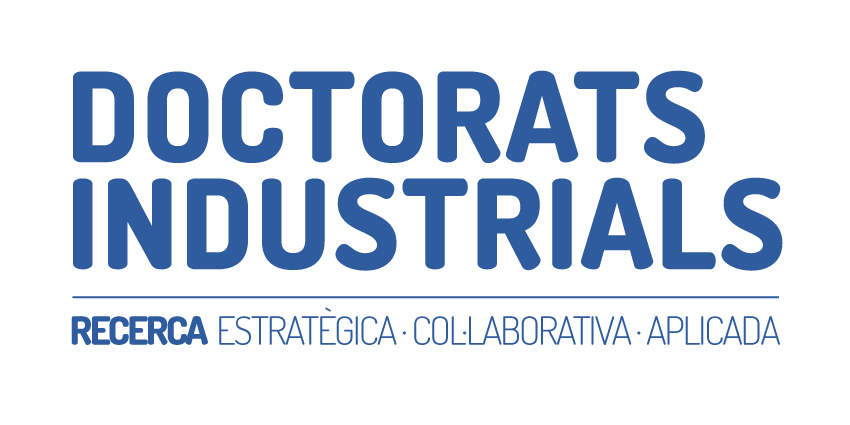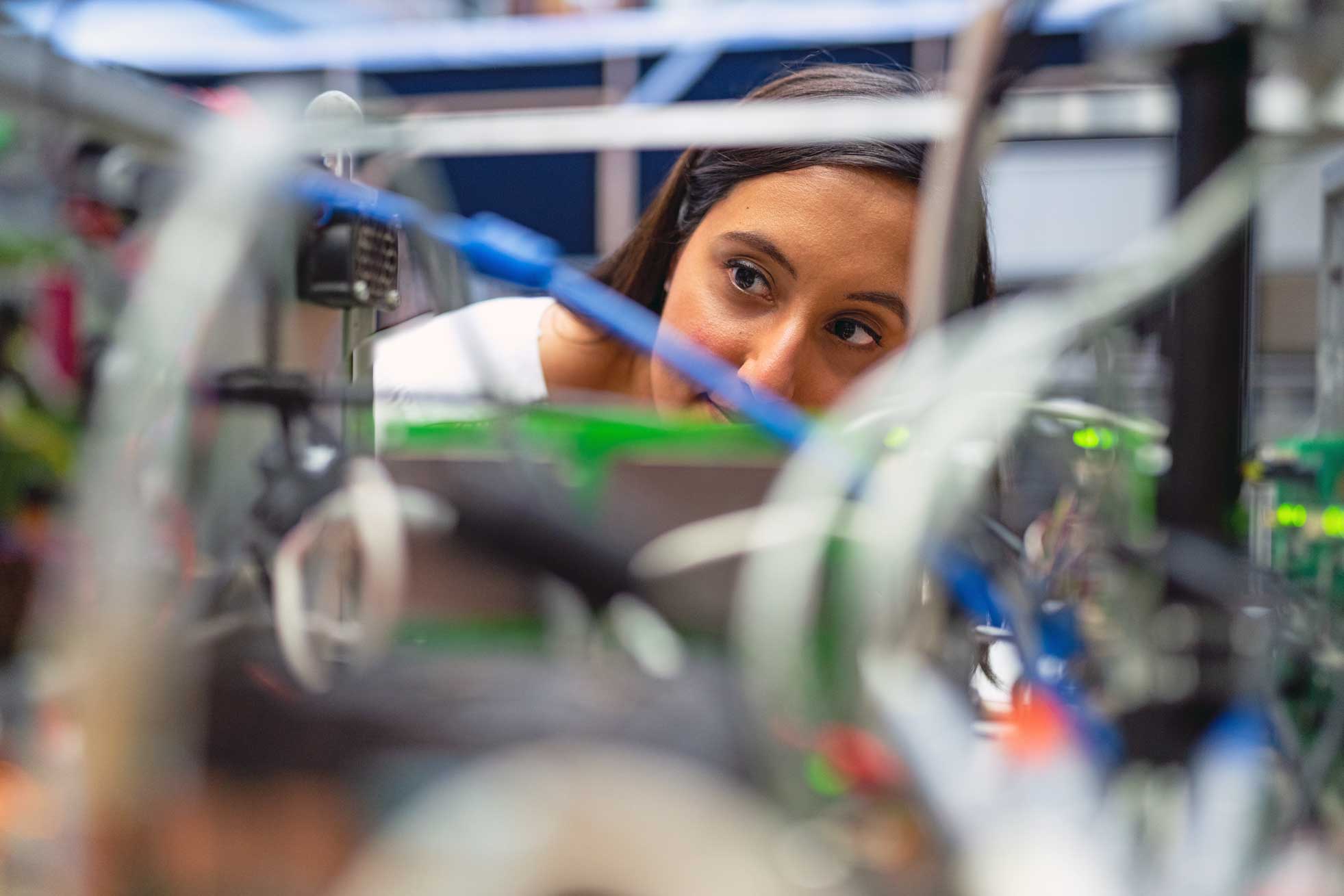
La pandèmia de la COVID-19 va acostar la ciència al ciutadà, modificant la seva percepció sobre la importància dels avenços científics. A més, la desinformació i les notícies falses associades a la pandèmia van demostrar les conseqüències de no comunicar amb claredat aquests avenços científics. Per això des del Pla de Doctorats Industrials considerem que és de vital importància fer que els nostres projectes de recerca col·laborativa s’entenguin.
Durant el 2022 el Pla Doctorats Industrials ha volgut començar a visibilitzar l’impacte d’alguns dels seus projectes elaborant entrevistes i reportatges en profunditat, alguns d’aquests també són bons exemples d’innovació disruptiva. L’objectiu és ampliar el nombre de reportatges durant el 2023, fins a arribar al màxim de projectes visibilitzats pel seu impacte social i econòmic. Visibilitzar i comunicar amb eficàcia aquesta recerca col·laborativa, el desenvolupament i la innovació té molts avantatges. De mitjana, els projectes que reben millor finançament són aquells que es venen millor, els que expliquin millor la seva pròpia recerca i innovació empresarial. L’impacte del missatge determinarà, en gran part, la credibilitat i importància de cada projecte.
Us convidem doncs a descobrir aquesta selecció de projectes de Doctorats Industrials, bons exemples de transferència del coneixement, d’impacte de la recerca en el territori. En definitiva, exemples de com la recerca col·laborativa pot contribuir a la competitivitat i la internacionalització del teixit industrial català.
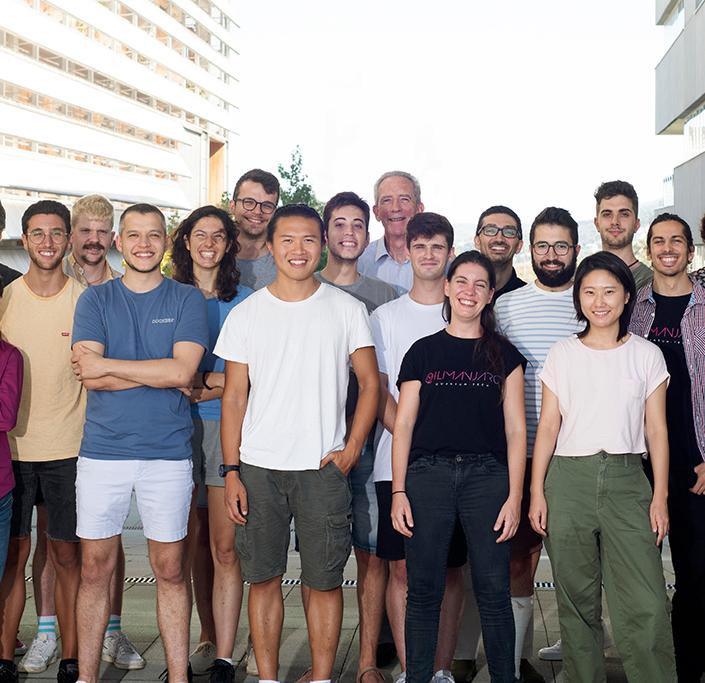
Segons el Boston Consulting Group, l’impacte econòmic de les tecnologies quàntiques s’estima en desenes de milions d’euros els anys vinents. La computació quàntica afectarà una sèrie d’àrees, com ara la salut, les finances, l’encriptació i la seguretat, per nomenar-ne algunes. De fet, ja estem utilitzant la física quàntica en la tecnologia làser, la ressonància magnètica i els xips informàtics. Té el potencial de revolucionar el nostre món.
L’empresa Qilimanjaro Quantum Tech, amb set projectes de Doctorats Industrials sobre computació i algoritmes quàntics, està intentant fer realitat el potencial de la computació quàntica desenvolupant tant programari com maquinari en aquest camp. El desenvolupament d’aquests projectes es porta a terme en un entorn dual, empresarial i acadèmic, fet que genera dues línies de pensament complementàries, i que l’empresa sap aprofitar. L’empresa ha col·laborat amb l’Institut de Física d’Altes Energies, la Universitat de Barcelona i la Universitat Politècnica de Catalunya.
La seva missió principal és construir un ordinador quàntic, i fer-ho des de l’àmbit purament acadèmic era molt complicat a causa del finançament del projecte, per això van apostar per la recerca col·laborativa que ofereixen els Doctorats Industrials. Marta Pascual, enginyera quàntica sènior en l’equip de teoria de Qilimanjaro a Barcelona, ens explicava en una entrevista, que és exactament un ordinador quàntic: «és un sistema de còmput que fa ús d’una lògica diferent de la dels ordinadors convencionals». La possibilitat de codificar la informació en aquest tipus d’estats quàntics permet que la manipulació de la informació sigui molt més eficient i, per tant, molt més ràpida a l’hora de calcular cert tipus de problemes.
Podeu llegir el reportatge complet en aquest enllaç.
Nou model de mobilitat urbana de mercaderies a Barcelona, el cas de l’Ajuntament de Barcelona
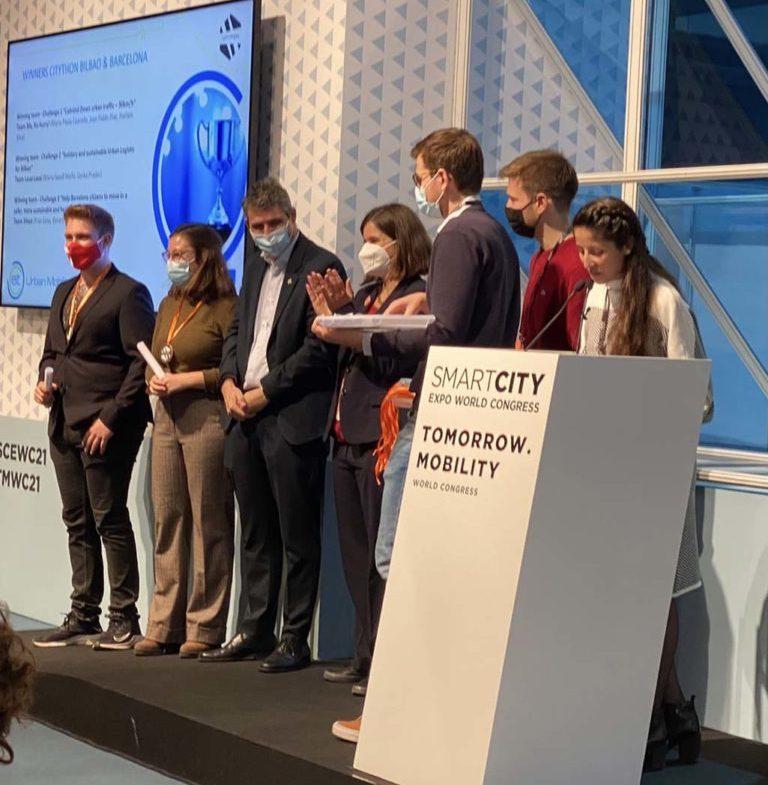
Tot i que el paradigma de la mobilitat urbana no canviarà immediatament, la seva estructura s’està modificant actualment a les ciutats europees més grans. L’Agenda 2030 ha impulsat la creació d’un nou urbanisme a aquestes ciutats. Són molts els objectius que cal assolir per gestionar adequadament els centres urbans sostenibles: gestió del trànsit, ús compartit de vehicles, utilització d’energies renovables al transport públic, planificació i disseny urbà que promogui la mobilitat sostenible, etc.
Aquests reptes són un petit exemple de tot el que un projecte de doctorat industrial, encapçalat per l’Ajuntament de Barcelona i la Universitat Politècnica de Catalunya, pretén abordar per trobar-hi una solució. En concret, el projecte aborda de manera integral la sostenibilitat de l’actual logística urbana barcelonina, proposant mesures d’harmonització entre la logística del comerç electrònic i les mercaderies amb l’ús de l’espai públic per a altres activitats ciutadanes.
Per tal de fer front a l’increment exponencial de les compres per internet que l’equip ha detectat, suggereixen un nou model de distribució de mercaderies amb l’objectiu de reduir l’impacte ambiental, però també de minimitzar la congestió i el soroll. Segons l’equip del projecte, també serviria per assolir una reducció de l’ús de l’espai públic i, per tant, aquest espai podria millorar i es podria posar a disposició de la ciutadania.
Podeu llegir el reportatge complet en aquest enllaç.
Transportar fàrmacs al cervell per tractar tipus de càncer infantil per ara incurables, el cas de Gate2Brain
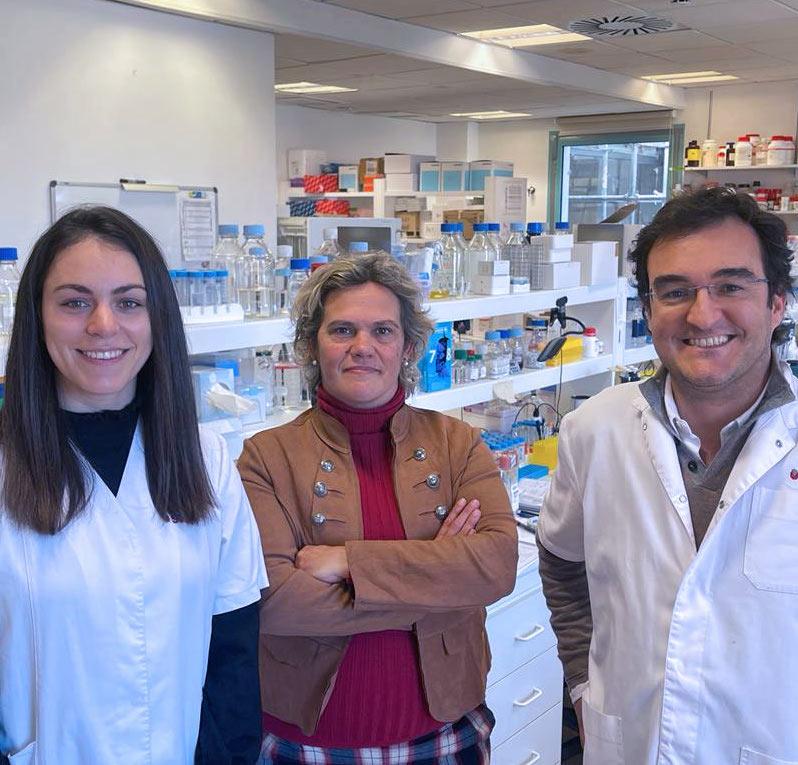
La col·laboració entre l’Institut de Recerca Sant Joan de Déu (IRSJD – UB) i l’empresa Gate2Brain permetrà utilitzar una tecnologia per travessar la barrera hematoencefàlica al cervell i administrar fàrmacs. Aquesta investigació aplicada pretén subministrar medicaments anticancerígens segurs i transferibles per al càncer juvenil, concretament aquells que ja són letals o que provoquen danys permanents.
Per fer un pas endavant en els estudis terapèutics abans d’aplicar-los a la clínica definitiva, i estudiant a fons l’impacte dels fàrmacs en el cos dels infants afectats de càncer, investigadors de l’IRB Barcelona, la Universitat de Barcelona (UB) i l’Institut de Recerca Sant Joan de Déu – Hospital Sant Joan de Déu (SJD-UB) van crear la spin-off Gate2Brain el 2020, finalista a la Catalan Pitch Competition 2021.
La tecnologia per transportar fàrmacs al cervell és la innovació que Gate2Brain aporta a la recerca biomèdica. Buscar una solució als casos diagnosticats amb una tipologia de càncer cerebral infantil molt poc comú i, que avui no disposen de cap tractament, són l’objectiu d’aquest projecte. La doctora Meritxell Teixidó, CEO de Gate2Brain, ens explica com en el marc del Doctorat Industrial l’equip del projecte pretenen «millorar el transport d’un agent quimioterapèutic per lluitar contra uns tumors cerebrals pediàtrics que tenen la barrera intacta i això en dificulta la cura».
Podeu llegir el reportatge complet en aquest enllaç.
Reduir el CO₂ de l’atmosfera per lluitar contra el canvi climàtic, el cas de la Fundació Greennova
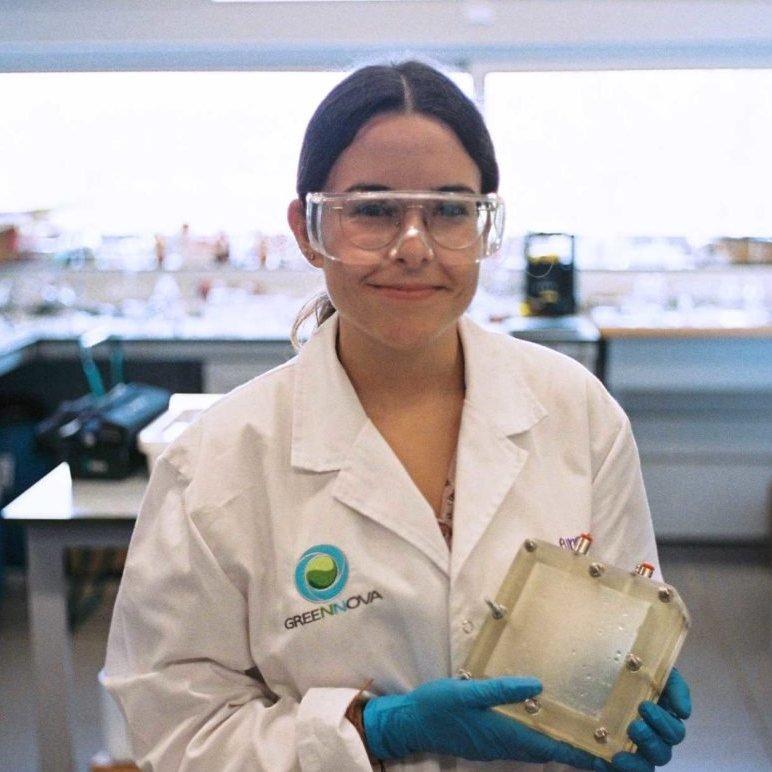
El 2021 va ser el sisè any més càlid registrat, i els 10 anys més càlids es van produir entre el 2010 i el 2021. Si aquesta tendència continua, en 10 anys arribarem al sostre d’escalfament global establert pels Acords de París, que especifica un augment màxim d’1,5 °C de temperatura. El canvi climàtic és una realitat i les conseqüències ja són evidents. Quan es produeix un augment de la temperatura, només és el començament d’un procés complex que implica molts escenaris possibles. La sequera i les inundacions, els incendis i el desglaç dels pols, l’escalfament atmosfèric són només algunes de les possibilitats.
Davant d’aquest escenari, dos projectes de Doctorats Industrials s’han proposat lluitar contra el canvi climàtic aportant solucions que es fonamenten en la idea de treure diòxid de carboni (CO₂) de l’aire. Precisament, l’increment dels gasos amb efecte hivernacle a l’atmosfera és una de les principals causes del canvi climàtic. Els dos projectes s’emmarquen en una recerca col·laborativa entre la Fundació Greennova i la Universitat Rovira i Virgili i la Universitat de Barcelona.
Un dels investigadors dels projectes, el Dr. Ricard Garcia-Valls (professor d’Enginyeria Química de la Universitat Rovira i Virgili) creu que si aquests projectes funcionen «podrem netejar el CO₂ ja present a l’atmosfera per deixar-lo en valors correctes per a l’equilibri del clima». Una de les aplicacions que proposen amb més impacte domèstic és instal·lar un aparell en un habitatge o una oficina per capturar el CO₂ que respiren totes les persones que hi conviuen.
Podeu llegir el reportatge complet en aquest enllaç.
Tecnologia immersiva per millorar la vida de persones amb mobilitat reduïda, el cas de Vysion del Grup Mediapro
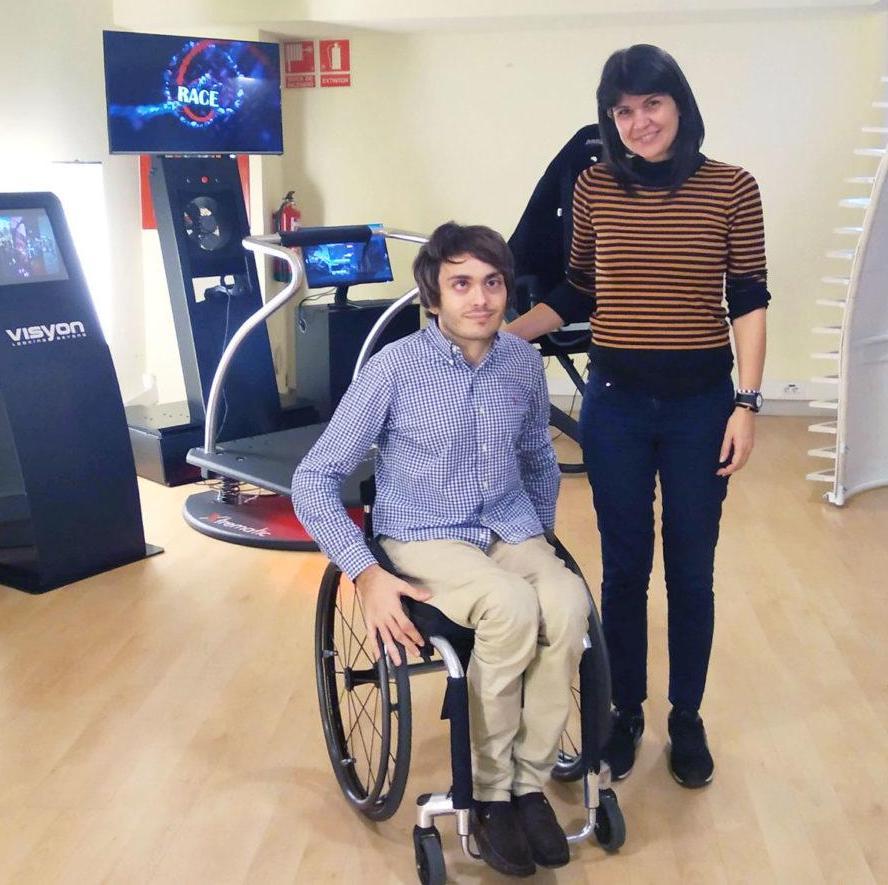
Vysion és una empresa que produeix contingut i experiències immersives mitjançant la creativitat i la tecnologia, que ha estat mereixedora de nombrosos premis. El seu projecte de Doctorats Industrials promou l’ús de la tecnologia de realitat virtual, augmentada i mixta per millorar el benestar personal i les interaccions socials en col·lectius de persones amb mobilitat reduïda. En definitiva, busca millorar l’accessibilitat a aquests dispositius i l’accés als seus continguts per tal de contribuir a augmentar l’autonomia i la qualitat de vida del col·lectiu.
El projecte ha pogut detectar quins són els problemes d’accessibilitat més habituals de les persones amb mobilitat reduïda, donat que no tots els espais físics reals, en general, estan adaptats de manera inclusiva completament. Gràcies a la utilització de tecnologies immersives, els usuaris amb mobilitat reduïda tenen l’oportunitat, tal com ens explica la doctoranda de l’equip Alicia Cañellas-Mayor: «de poder “teletransportar-se” digitalment i de manera immersiva a espais o llocs de difícil accés que, potser d’una altra manera, no podrien visitar».
Un dels objectius secundaris de la recerca que porta a terme aquest projecte és precisament sensibilitzar al sector de la tecnologia de realitat estesa en aspectes vinculats a accessibilitat i el disseny universal. El projecte també ha servit per detectar altres possibles usos, des d’utilitzar aquestes tecnologies per a visibilitzar la realitat del col·lectiu a la resta de la societat de manera immersiva, realitzar videoconferències immersives 360°, controlar entorns domòtics del domicili, fins a poder practicar activitats d’estimulació i processos d’aprenentatge o de rehabilitació.
Podeu llegir el reportatge complet en aquest enllaç.
Intel·ligència artificial aplicada als serveis d’etiquetatge i indexació de continguts i vídeos a internet, el cas de Vilynx
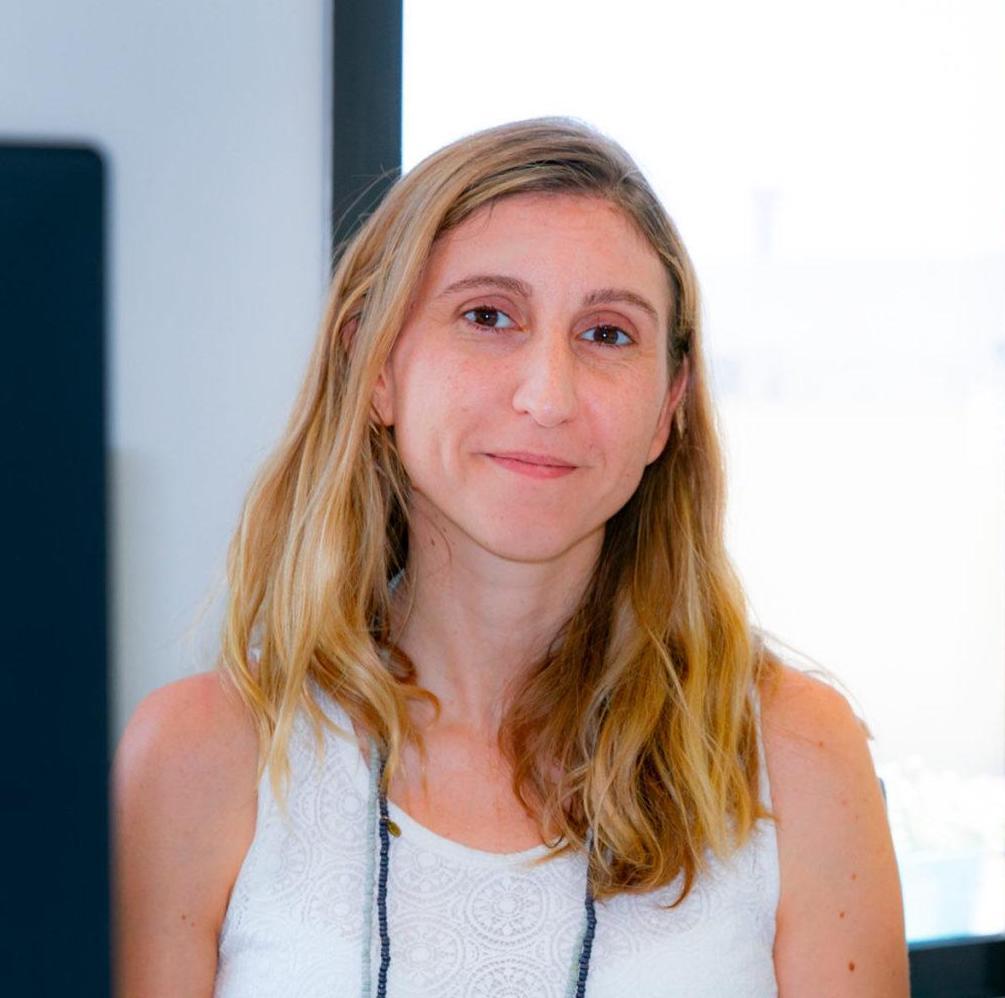
Elisenda Bou-Balust és la cofundadora i CTO de Vilynx, una empresa emergent amb quatre Doctorats Industrials, capdavantera a crear el primer sistema d’intel·ligència artificial que ofereix serveis d’etiquetatge i indexació de continguts i vídeos a internet, per poder trobar-los a partir de cerques. L’empresa va ser la primera adquisició d’Apple a Espanya el 2020.
Els projectes liderats per Bou-Balust fan servir la tecnologia per ordenar i classificar les tones de contingut audiovisual que s’acumulen a internet. La feina consisteix a ensenyar a la intel·ligència artificial el que hi ha en els vídeos perquè la pròxima vegada que es trobi amb un concepte el pugui reconèixer. Això fa que, per exemple, el sistema entengui quan en unes imatges hi està passant un fet fora del normal que serà interessant per a l’espectador.
Segons ens explicava en una entrevista, Bou-Balust considera que un dels aspectes positius de la intel·ligència artificial és que pot passar desapercebuda: “d’alguna manera humanitzen les interfícies de les màquines. Un exemple molt clar és la navegació del cotxe, que molta gent potser no utilitzaria, però com que és un sistema per veu molt senzill, tothom l’acaba fent servir”.
